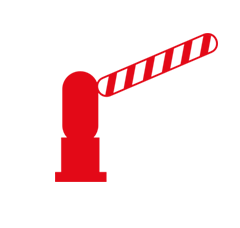At a seminar organised at the European Parliament in Brussels, the Chairman of the Autonomous Port of Bilbao, Asier Atutxa, announced that the aim of the Port of Bilbao is to “be the best equipped port on the Bay of Biscay to receive the autonomous ships of the future”.
He stated that since 2000, the Port of Bilbao has not only been working with a dynamic to develop its infrastructure, but also its infostructure, and to manage the Port from the standpoint of a completely integrated logistics chain, that is, in some way to develop a Smartport. “This has supposed the gradual creation of a digital culture in the Port, and as new strategies like autonomous shipping develop in the maritime world, this will enable us to receive such vessels, after further developments are carried out”.
Atutxa specified that, in this process, the Port Authority is integrated in several European programmes. He stressed the need to draw up specific legislation for autonomous shipping, and backed the opportunities these technologies provide to link maritime transport with other transport modes. To this effect, he insisted on the advantages Bilbao offers “since it is part of the Atlantic Axis – one of the European priority axes”.
The coming into service of vessels that are wholly or partially remote controlled, or totally autonomous, is now technically possible: such ships can drastically reduce operational costs, accelerate emissions reduction as well as provide competitiveness through the reduction in logistics costs to the whole European economy.
The Port Authority Chairman was speaking at the seminar organised by Izaskun Bilbao Barandica, vice chairperson of the ALDE Group (Alliance of Liberals and Democrats for Europe) and member of the European Parliament Transport Group. The objective of this initiative is to gather impressions and experiences in order to prepare the legislative work to be undertaken by the Community institutions over the coming months so as to attend this reality.
The seminar was closed by the Transport Commissioner, Violeta Bulc, who insisted on the need to lead this process of change from the Union, and she pointed out that “anticipating change means Europe will not only lead in technology, but also in business and social models. I see an enormous potential in transport automation, but we must bring on board the change with everyone, especially the people connected with the sea. This is the key to situating shipping within tomorrow’s integrated multimodal transport system”.

The Basque Euro MP, Izaskun Bilbao, recalled that the European White Paper on Transport already anticipated the roles played by technology and innovation to “maintain the competitiveness of the European transport sector in the world market and place it at the forefront”. She underlined that the experiences presented in Brussels today “bring us nearer to what in material terms, in terms of reality, these objectives mean for the maritime sector which moves 90% of overseas goods transport and 40% domestic. Technology already enables ships with cleaner propellers to be brought into service, completely interlinked with their surroundings and with other modes of transport, guided by remote control or autonomous pilotage and which are capable of reducing operational costs by 90% and making very significant contributions to decarbonisation”.
Bilbao Barandica emphasised that the resulting reduction in logistics costs will increase competition in the whole European economy and will open up new opportunities for shipbuilding and other sectors where new activities, businesses, trades and employment will appear. “Our duty as Euro MPs is to be prepared within our spheres of competence – norms and regulations, legislation, setting social, technical and safety standards in order to favour the advantages an intelligent and human use of technology provides”.
Isabelle Ryckbost, the Secretary General of ESPO – European Port House – insisted on the active role of the ports in this commitment to technology. “Autonomous vessels can be an asset for our ports if they increase safety, efficiency and sustainability levels. I also believe it is important to clarify that autonomous shipping does not necessarily mean non-manned boats. If certain tasks can be automated or managed from land, crews can devote more time to other key aspects such as safety. It is fundamental to hold discussions between ports and shipping companies in order for them to evolve together and to guarantee that the ship-land connection is adapted to these vessels”.

 Port access
Port access